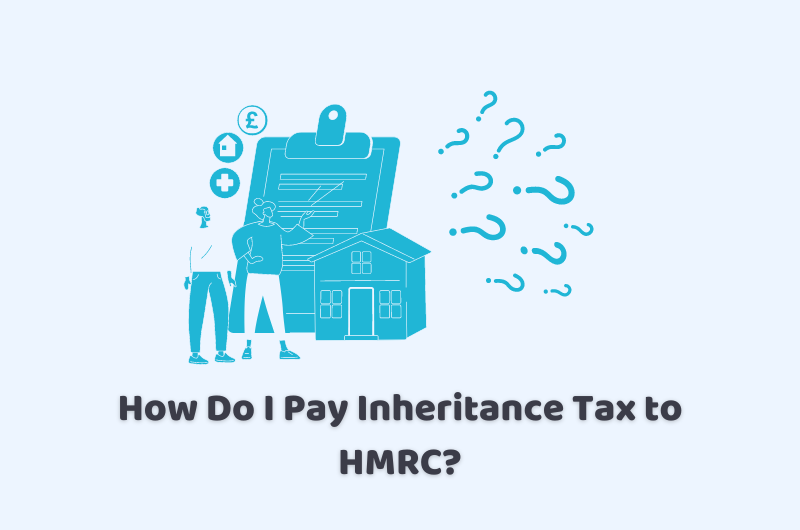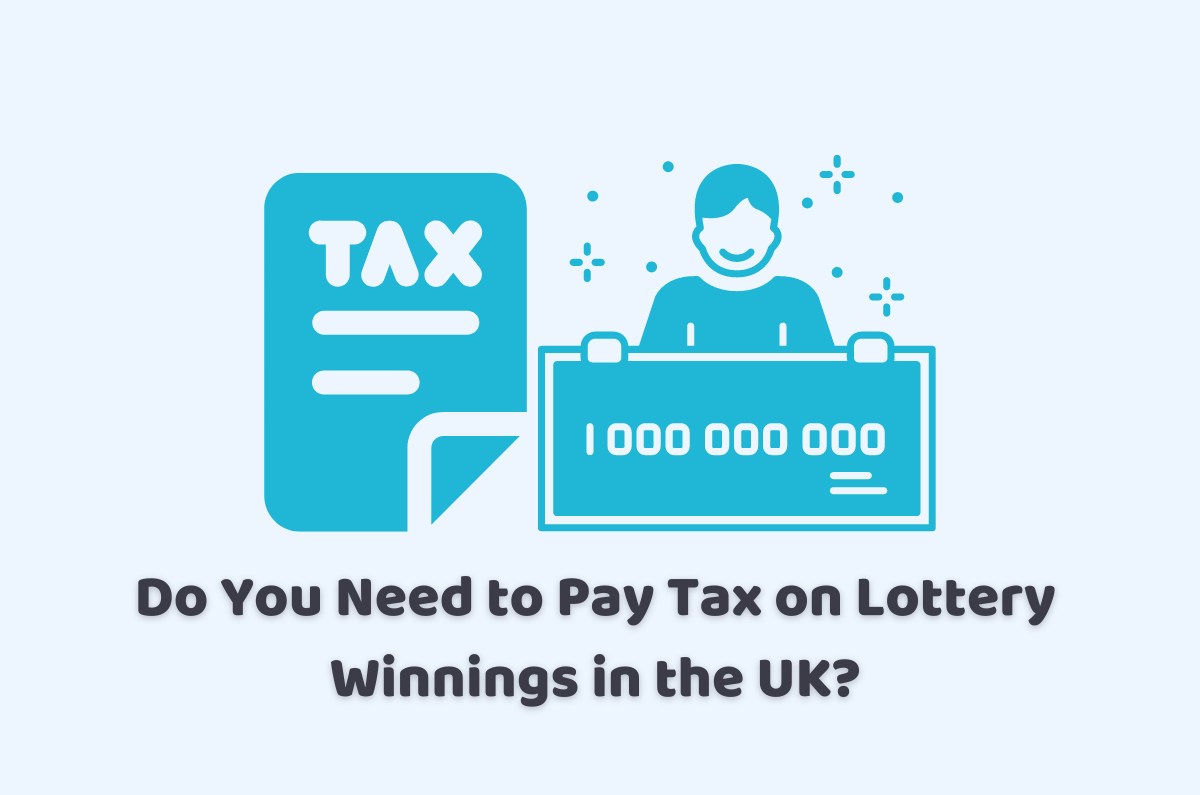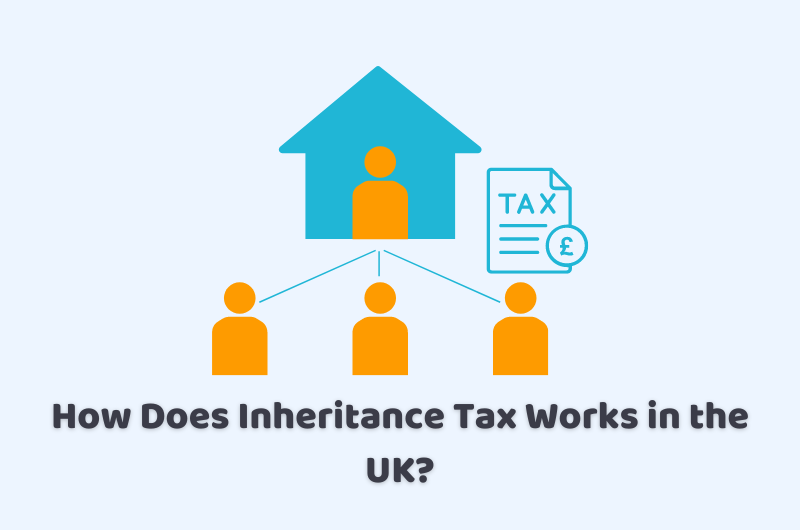
15/05/2023tax , Tax Issues , Tax News and Tips , Tax Saving Tips , Taxation
If you are associated with large estates, you must know that a small percentage of these estates are large enough that they can actually incur the inheritance tax. However, it is very imperative to take its consideration seriously while a person is making the will. This brings in the importance of gathering information about how to pay Inheritance Tax to HMRC. This guide is designed to focus on the points of discussion that are important for all beginners in this regard. This could possibly involve the discussion of the basic facts about inheritance tax, how much to pay in the form of inheritance tax, who will pay the tax, and how the amount of inheritance tax bill can be reduced. Let us get further delved into the discussion to gather more information.
Reach out to our smart and clever-minded guys to get an understanding of the pay inheritance tax in the UK. We will help to understand your queries instantly.
What is Inheritance Tax?
IHT is known as the abbreviation of inheritance tax. It is a kind of tax that belongs to the estates of someone who is demised. This could include the money of the dead person along with the possessions and all the property. Normally the standard rate of the inheritance tax is 40 percent. Once you find out that there is a part of your property that is more than the limit of the tax-free value of the property, the standard rate of the tax will be charged.
How Much is Inheritance Tax?
The question that might arise here for many of you is how much amount is to be paid if you are liable to pay the inheritance tax. Well, the good news is that the tax is not paid on a few certain conditions. This could possibly be one of the following:
- If you have given the main house to your grandchildren or to your own children.
- If you decide to transfer everything to the name of an exempt beneficiary. This could be any charity organisation or the community amateur sports club.
- You have transferred all of your assets and property to the name of your civil partner or your spouse.
- The value of your property is less than the limit of the threshold.
How to Value the Estate?
There are of course a few steps when it comes to calculating the value of the estate. All you have to do is to deduct the liabilities and the debts. Make a list of all the assets and properties to figure out the value just exactly at the date of death of the owner. This is important to mention here that the record of making the calculations must be kept intact. This involves the details of the estate agent’s valuation.
Who Pays Inheritance Tax?
In case of the dead person has left a will, it is now the responsibility of the executor to fulfil the commands and pay the inheritance tax. On the other hand, if the owner has not left any will, the administrator will have to take accountability for the estate that owes inheritance tax to HMRC. In the case of having the funds in the estate, the inheritance tax can easily be paid from this. The sale of the assets will also big in a good amount of money, this can be used to make the payment of inheritance tax as well.
When Do You have to Pay Inheritance Tax?
Once you observe that you are liable to pay the inheritance tax after a person is dead. This must be done within the time duration of six months after the person has died. Otherwise, the late fine will be charged by HMRC if you delay the inheritance tax payments. On a few assets the chosen executors can pay the tax. This could involve the value of the property to be covered in instalments over a certain period of time.
Inheritance Tax Gifts, Reliefs and Exemptions
Inheritance tax is usually not applicable for some properties and gifts. This could involve charity to the organisations and the wedding gifts as well. Business assets and farms are the kind of estates that can be exempted from paying the inheritance tax on certain conditions. So the owners of such assets can take advantage of this possibility. If the dead person has gifted an asset before a period of seven years, it will be included as the asset that will come under the liability of inheritance tax.
How can I Reduce the Amount of Tax Paid?
It is quite a complicated attempt to reduce the amount of inheritance tax bill which is due on any kind of estate. However, there are chances to reduce the tax by paying any one of the following options:
- You have left the arrests in the name of your children or in the name of your spouse.
- If you leave the legacy of the assets to a charitable organisation.
- If you aim to put the assets for heirs into a trust.
- If you are regular gift a certain amount over the period of one tax year.
- You have paid a regular amount to the pension rather than paying to the accounts of your savings.
Using life Insurance to Pay Inheritance Tax
It becomes easy for many people when they used a life insurance policy to pay the inheritance tax. This could be used to pay a part of the inheritance tax or the whole amount in the bills. It will also help to protect the main house and other relevant assets to be sold out after the death of the owner.
The Bottom Line
Now that you have gathered a fair amount of information about how to pay Inheritance Tax to HMRC in the UK, we can bring the discussion towards wrapping up. Paying inheritance tax to HMRC is not a very easy or straightforward method. However, there are certain conditions implemented, the process can be much more precise and protective for your assets and your property. We hope these few minutes of reading will help you to develop a better understanding of how to handle the liability of paying the inheritance tax in the future.
Our team of professional members loves to hear out your business problems and find out the possible and suitable solutions quickly to the reporting in the UK. Contact us now.
Disclaimer: The information about the pay inheritance tax in the UK provided in this blog includes text and graphics of general nature. It does not intend to disregard any of the professional advice.



